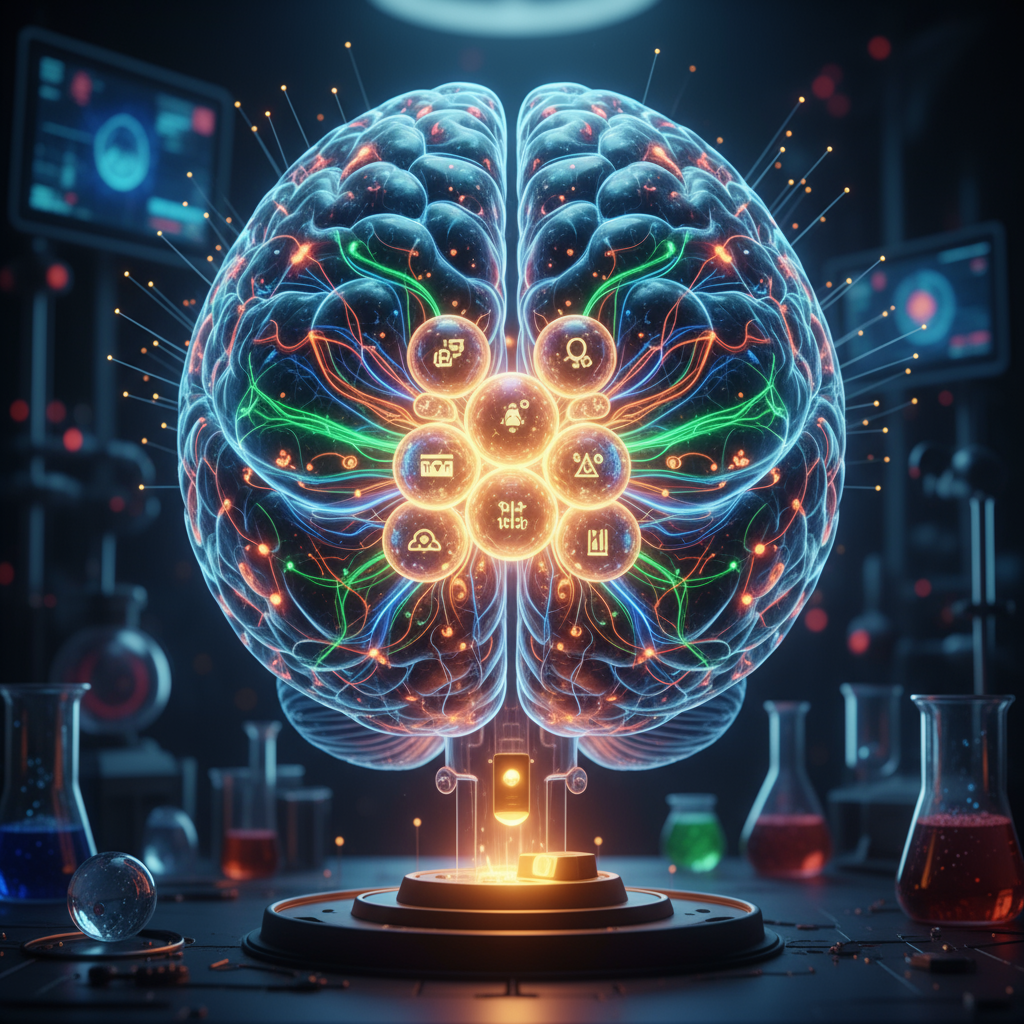Unlocking the Appetite Enigma: Scientists Discover a Hidden Hunger Switch!

Ever felt that insatiable craving, even after a hearty meal? Or perhaps you’ve struggled with understanding why your appetite fluctuates so wildly? For centuries, the intricate dance of hunger has baffled scientists and individuals alike. It’s a primal drive, essential for survival, yet often a source of frustration in our modern world. But what if we told you that the key to understanding and potentially even controlling this fundamental biological process might have just been discovered? Recent groundbreaking research has unveiled a hidden “switch” in the brain that plays a pivotal role in regulating our hunger, opening up exciting new avenues for treating obesity, eating disorders, and a host of other health challenges.
The Brain’s Intricate Hunger Control Room

Our brains are a marvel of biological engineering, and nestled deep within its complex circuitry are several regions dedicated to orchestrating our bodily functions, including appetite. For a long time, scientists have known about the hypothalamus, a key player in regulating hunger and satiety. However, the precise mechanisms and specific neural pathways involved have remained largely elusive. This new discovery zooms in on a particular set of neurons that act as a crucial control point, essentially flipping the “on” and “off” switch for our hunger signals.
Imagine a carefully calibrated thermostat in your home. When the temperature drops, it signals the heater to turn on; when it rises, it signals it to turn off. Our brains have a similar system for regulating energy balance, and food intake is a major component of that. This newly identified “hunger switch” appears to be an integral part of that finely tuned regulatory system. Researchers have pinpointed specific neurons that, when activated, intensely stimulate hunger, prompting individuals to seek out and consume food. Conversely, when these neurons are inhibited, the desire to eat significantly diminishes.
Identifying the Master Regulator: A Deep Dive into the Discovery
The scientific journey to uncover this hidden switch involved a combination of cutting-edge techniques. Researchers utilized advanced genetic manipulation and neuroscience tools to selectively activate and deactivate specific neural pathways in animal models. By observing the behavioral changes and physiological responses of these animals, they were able to pinpoint the exact group of neurons responsible for this profound control over feeding behavior.
What makes this discovery particularly exciting is the level of precision achieved. Instead of broadly influencing multiple brain regions, scientists were able to target a very specific cluster of cells. This targeted approach is crucial for developing therapies that can address hunger-related issues without causing unintended side effects. The potential to “turn down” an overactive hunger signal or “turn up” a suppressed appetite holds immense promise for various medical applications.
Implications and Future Horizons: From Obesity to Anorexia
The implications of this discovery are vast and far-reaching. Let’s explore some of the potential real-world applications:
- Tackling Obesity: For millions worldwide, obesity is a chronic and debilitating condition. The inability to control hunger and cravings often plays a significant role. If scientists can find ways to safely and effectively “switch off” or significantly dampen the activity of these hunger-promoting neurons, it could lead to revolutionary new treatments for weight management. Imagine a future where medication could help individuals feel full and satisfied with smaller portions, reducing the constant battle against overwhelming hunger cues.
- Addressing Eating Disorders: On the other end of the spectrum, conditions like anorexia nervosa are characterized by a severe restriction of food intake. If it’s possible to “switch on” or enhance the activity of these hunger-inducing neurons, it could potentially help patients regain their appetite and establish healthy eating patterns. This offers a glimmer of hope for a notoriously difficult-to-treat condition.
- Diabetes Management: The interplay between hunger, food intake, and blood sugar levels is critical for diabetes management. By understanding and potentially modulating this hunger switch, there could be new strategies to help diabetic patients regulate their food intake and maintain stable glucose levels more effectively.
- Improving Nutritional Health: Beyond specific disorders, a deeper understanding of this hunger switch could lead to a more nuanced approach to public health campaigns and dietary advice. Tailoring interventions based on individual hunger responses rather than generic guidelines could be a powerful tool for promoting overall nutritional well-being.
It’s important to remember that this research is still in its relatively early stages. While animal models provide invaluable insights, translating these findings safely and effectively to humans will require extensive further research, clinical trials, and careful consideration of ethical implications. However, the potential for transformative impact is undeniable.
A New Dawn in Appetite Research
The discovery of this hidden hunger switch represents a significant leap forward in our understanding of one of life’s most fundamental drives. It’s a testament to the relentless curiosity and dedication of scientists who continue to unlock the mysteries of the human body. While more research is undoubtedly needed, this breakthrough offers a tantalizing glimpse into a future where we might have greater control over our hunger, leading to more effective treatments for challenging conditions, and ultimately, a healthier population. This isn’t just about weight loss; it’s about empowering individuals with a better understanding and perhaps, even a new form of agency over their own bodies and well-being. The conversation around hunger, our relationship with food, and the potential for a healthier future has just been fundamentally reshaped.

